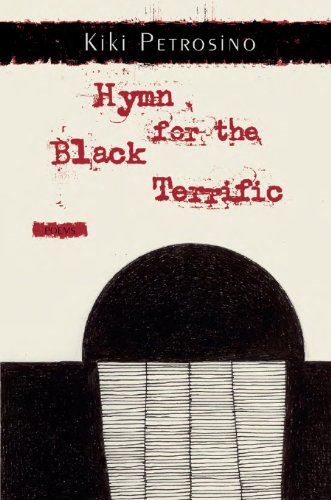Customer Services



Full description not available
I**T
Liquid Poetry
Petrosino’s writing is fluid and rich. Her words seem to be some combination of tea with diamonds (At The Teahouse, p.21), dripping wet new graffiti, streetlights on a slick street, blood and tar, and maybe soy sauce. It’s thick and sticky, and it shines. It's light, it skips around: touching on pop culture as easily as it settles itself in churning through Thomas Jefferson/Monticello/slavery in the US and contemporary racism.Her writing is active and musical. Moving, working, playing with sounds, rhythm, repeating, bouncing. It’s textured like the teeth and swamps and dark she writes about. She paints, not just with the usual brushstrokes and colors, but with colors she plucks from anywhere and everywhere. Time moves in and out. In a moment she is in both a memory, the present writing of the poem, and another present where action takes place. She wrestles, with the writing, with the words, with the world.All poetry is rooted in the poet. It comes from the writer, from the viewpoints of the poet. But Petrosino’s is more than just stemming from her. The poems seem to wrap themselves around her tongue and spit from between her teeth as you read them. Pulled from somewhere within her they wind themselves around and around. She is speaking directly to you in her poems. Not just any reader. You. And she is not a vague presence or creator. She is every letter and moment and sound and every intention and structural move.Hymn for the Black Terrific is a treasure chest of language and imagery. It is lush, and dense. It pulls you in to it's world, and spits you back out thinking. I highly recommend it.
A**.
Terrifying and Exciting!
Kiki Petrosino's book of poetry Hymn for the Black Terrific terrifies and excites, a combination that is just right, and a composure that is just so. Her poem "Cygnus Cygnus" is a fine example of modern poetry concluding the opening section of the book."Cygnus Cygnus" with its image of a swan, pays homage to the modern master Charles Baudelaire. The sense of loss is palpable. The music commendable, and the images are true. The dead flamingoes and microscopic bluebirds are real. Heaven on high.The second section of her book is a ten poem homage to black women.The last section is little poems in prose. In each poem is a character called the "eater." I think of Mark Strand and "Eating Poetry." The eater can be the reader.All in all a fine collection of poetry.Allen Hagar
C**N
Full of energy, fluid, but slightly uneven
Petrosino seems to move this collection from somewhat plain language lyrics to long and breathless prose poetry. The second section's prose poems sequence is Whitman-esque in its expansiveness with Chinese food rooting the motifs together, and the final section seems to heavily influenced by Elisabeth Bishop but the poems are far more manic in their energy. The topics vary wildly: marriage, swamps, postcards, Pythagoras, Ancestors, night. The energy of the collection can feel a little uneven, but it quite engaging.
J**X
Superior Poetry
Great imagery used to create a series of poems that tell their individual stories. I will purchase more from this author.
A**N
Five Stars
Book was as described and in good condition.
A**M
Another Form of Writing
Kiki Petrosino's Hymn for the Black Terrific does something different for every reader. The most evident feature of this work is the intent to write with one's own form. Her form and content reflect her ethnicity and experiences/history as being a part of that. One of the most notable quotes - of which I asked Petrosino about in person at a reading - is Thomas Jefferson's, "Misery is often the parent of the most affecting touches in poetry. Among the blacks is misery enough, God knows, but no poetry." The truth behind this quote was of Jefferson disclaiming the possibility of "blacks" producing poetry. This quote is the precedent of a whole section of poems, the section that most obviously takes on a different form and different stab at creative writing poetry.
Trustpilot
2 months ago
2 weeks ago